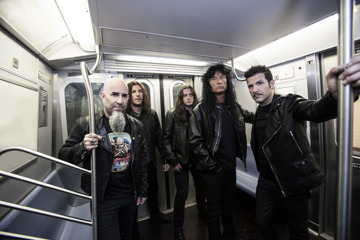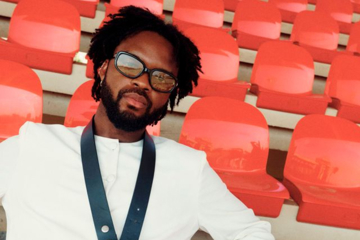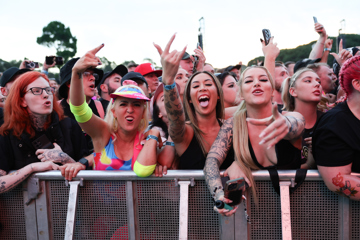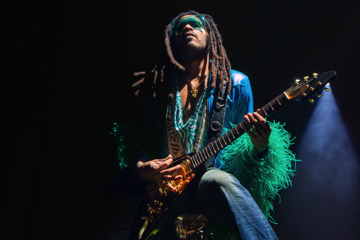Five 'Daredevil' Moments Worth Revisiting Before You Binge-Watch Season 2
Or, 'A Reminder On Why We'd Never Want To Live In Hell's Kitchen'
The second season of Marvel and Netflix's critically lauded series Daredevil returns to the streaming service as of today, bringing to a close months of excitement and build-up over the introduction of iconic characters from comics lore such as brutal anti-hero The Punisher (Jon Bernthal) and career assassin Elektra Natchios (Elodie Yung).
Season two promises to show the fallout of the Man Without Fear's actions in its first run of episodes, which followed the rise of blind lawyer Matt Murdock (Charlie Cox) from under-equipped street vigilante to costumed legend against the violent machinations of criminal mastermind Wilson 'Kingpin' Fisk (an incredible turn from Vincent D'Onofrio).
With Kingpin behind bars(?), Murdock is poised to discover just how badly nature abhors a vacuum as he's forced to contend with the return of his old lover, Elektra, as well as pressing dual threats to the safety of Hell's Kitchen: the one-man war-on-crime that is Frank 'The Punisher' Castle, and the rise of shadowy ninja organisation The Hand.
Of course, none of this eagerly anticipated television would have been possible without the stunning groundwork laid down by Daredevil's first season, so before you settle into the couch to scarf down the entire second series this weekend, it's worth revisiting some highlights — and there were a lot of highlights — from last season to remind us all how truly special this show can be.
Don't miss a beat with our FREE daily newsletter
Be warned: spoilers for Daredevil's first season are ahead.
kingpin's 'good samaritan' monologue, daredevil (episode 13)
Vincent D'Onofrio has been a lot of things in his career. He's been a Law & Order detective, he was in Full Metal Jacket, and he even turned in Men In Black's most human performance despite spending almost the entire movie pretending to be a bug-person from the galaxy's most obviously terrible planet. But it's hard to say, in all his appearances, whether he's ever been more chilling — nigh terrifying — than as Wilson Fisk.
Throughout the season, D'Onofrio infuses Fisk with a frightening physical prowess and obvious intellect, underpinned by an almost child-like temper. It's what makes moments such as when he uses a car door to quite literally demolish a Russian mobster's head so shocking; this man spends so much of the season effecting a quiet calm, a sense of control — and yet he is routinely shown to be unflinchingly capable of brute, bestial force as well as being a man of great influence and, unnervingly, humanity.
So, in the season's final episode — having seen every string Fisk has pulled in his hidden war against Hell's Kitchen — a sense of unease permeates the air as he sits handcuffed in the back of a police van and starts recounting the biblical tale of the Good Samaritan to his bemused captors.
D'Onofrio's delivery of this monologue is simply spellbinding as Fisk grapples with his own identity ("It's funny, isn't it, how even the best of men can be deceived by their true nature," he muses) — and, ultimately, as the proverbial "ill intent", accepts it, moments before (surprise!) a plan to free him from the police's shackles is set in motion.
To reiterate: this is a man who beats Daredevil to within an inch of his life on their first physical meeting, and still manages to be scariest when he doesn't even lift a finger. That is a villain done right.
daredevil vs nobu, speak of the devil (episode 9)
As mentioned above, the first time Daredevil faces Fisk, it doesn't go so well for the vigilante. In fact, he kind of gets the snot punched out of him before exiting through the window. It's definitely one of Murdock's less encouraging results, at any rate.
In Daredevil's defence, however, it's not just his underestimation of Fisk that influences how that battle plays out — it might also have something to do with the fact he'd already had his ass handed to him once that day by ninja assassin Nobu, who works for season-two baddies The Hand.
This show has some jaw-dropping fight choreography (more on that later), and the Daredevil vs Nobu melee is one of its finest examples of that. It's not just because it's well blocked out, either; it's the sheer brutality of the face-off. Nobu's hook-chain thing is responsible for more than its fair share of involuntary winces as it scratches, collides with and downright digs into Murdock's increasingly bloodied frame before Daredevil inadvertently kills Nobu by accidentally setting him on fire.
And even then, Nobu just keeps on coming. And now Murdock's going to have the entire friggin' Hand cohort on his case. God bless ninjas, man.
kingpin kills ben urich, the ones we leave behind (episode 12)
In case you're not familiar with Marvel comics, Ben Urich is actually kind of a big deal. Historically a reporter for The Daily Bugle (The New York Bulletin in Daredevil on account of rights issues), Urich has frequently popped up over the years as an ally of both Daredevil and Spider-Man, using both for information and helping to bring down villainous figures — such as Fisk and S-M villain Norman Osborn — who spend their day hours posing as altruists and legitimate businessmen.
It's Urich who narrates the final (semi-canonical) Daredevil tale, End Of Days, when Murdock returns from a years-long absence only to be beaten to death in the street by long-time nemesis Bullseye. It's Urich who figured out that Murdock and Daredevil were the same person to begin with. It's Urich, chain-smoking, cantakerous bastard that he is, who has taken down criminal empires with the power of words. He has stared danger in the face and laughed, only stopping to cough up a lung and reach for another dart.
All of which makes Daredevil's decision to kill him off in the season's penultimate episode one of the run's more unexpected, and kind of devastating, turns. And, as with Fisk's decimation of that Russian mobster's head, the fact that it's the Kingpin himself, and not some faceless minion, who awaits Urich at home to strangle him to death with his bare hands — "But it's my mother" — reinforces the complexity and depth the show's writers brought to a character previously reduced to little more than a caricature in the 2003 film. It's as tragic a moment for Urich as it is a defining one for Fisk, and that makes it difficult to forget.
karen kills wesley, nelson v murdock (episode 10)
In Daredevil comics, Karen Page lives a preposterously depressing life. So far, the series has done little to change that fate — she starts the season as the unwitting victim of a murder frame-up, and things get worse from there — but there's one defining moment in season one's 13 episodes that categorically lifts the character from damsel in distress to self-rescuer with a secret, and that's when she shoots Fisk's right-hand man, Wesley, to death after she's been kidnapped and blackmailed over her and Urich's surreptitious activities.
It's an extremely important moment for Karen, not least of all because her rhetorical question to Wesley — "Do you really think this is the first time I've shot someone?" — all but confirms that there is far more to the fledgling administrator at the law offices of Nelson & Murdock than meets the eye, but also because it demonstrates that she doesn't actually need Murdock (or his partner, Foggy Nelson) to rescue her. And yet it's not done entirely in cold blood, with Karen almost immediately showing shock and emotion over having taken a(nother) life. It's beautifully rounded.
All of this may go some way towards explaining why it's Karen that seems to show the most understanding for The Punisher's methods in the trailers for season two, or at the very least is the only one to air concerns that she, Murdock and Nelson may actually be partially responsible for his creation because of what they've ignited with Daredevil. Karen is a woman who has done terrible things to survive, and while her murdering Wesley remains hidden from her employers, it's hard to imagine — kidnapping or not — that it's going to go down well when they do inevitably find out.
hallway brawl, cut man (episode 2)
Daredevil set itself apart from the comic-book pack pretty much from its first episode, but it was this scene — a single-shot brawl filmed in a hallway — that arguably served as the definitive point for many people when they went from enjoying the series to being outright hooked on it.
There is so much to love in this wonderfully executed set piece, it's a little difficult to know where to begin. The martial arts work from Charlie Cox is impressive, sure — all the more considering he's doing it through the eyeless head-rag that Daredevil rocks for the majority of the season — but it's his acting, and that of his punching bags, therein that really seals it.
It's in the little things — the fact that, unlike so many other shows, the bad guys don't get knocked out with one punch. Nor do they get up immediately. Everything is ugly, a bit shambolic, not quite expertly executed. Compare Batman taking out thugs in the latest Batman V Superman trailer — precise, streamlined, rapid-fire — with the assault Daredevil mounts here, and this just feels so much more… real. The fact he doesn't just kip-up immediately after landing a diving rolling kick on cement — that he has to struggle to his feet — is believable, because that sort of move doesn't happen without having an impact on its performer.
Then, on top of that, there's the commendable cinematography and choreography, the single shot following Daredevil as he makes his way down (and either side of) the hallway towards a door to rescue a kidnapped child. From the mission to the setting to the street-level villains, this scene is possibly more Daredevil — in terms of wordlessly representing his motivations, his heroism pay-grade, his general priorities — than anything else in the initial 13 episodes, and for that reason it gets our vote as most memorable moment of the season.
Daredevil season two is streaming on Netflix from today.







